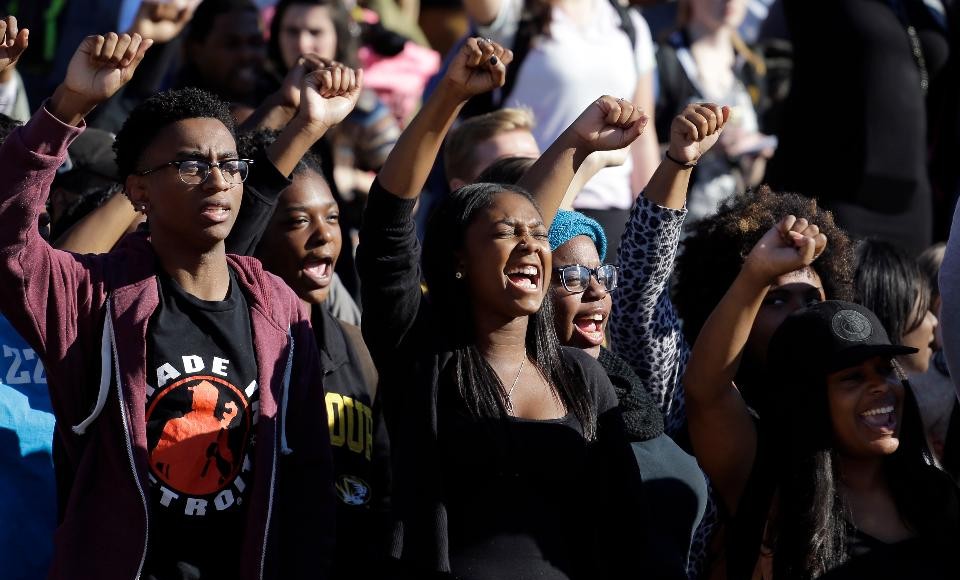By now, you’ve heard of the numerous protests occurring on college campuses all around the country. Many wholeheartedly agree with the protests, in principle, but vehemently disagree with the way they’re being carried out. I happen to be one of those people.
I wouldn’t call myself an “Uncle Tom” or say I’m on the sidelines by any means. I’ve written extensively about social justice in the past. I believe that both concepts of institutional racism and white privilege exist on a level that not many people are willing to admit exists. Having read a lot of the demands that students across the nation have been making in concert with these protests, they just don’t make a lot of sense to me. These are demands that largely include the ironic stance of having an institution admit that it is racist, then seeking the permission of said racist institution to have them silence and condemn views that don’t completely align with theirs.
A by-product of these protests have been open hostility being shown to members of the media, whom a lot of these protesters think unfavorably characterize their efforts. The bullying and shouting down of a reporter covering the University of Missouri protests and the barring of reporters from covering a sit-in at Smith College were just a couple of examples.
It was following those two incidents that the proverbial fork in the road was apparent to me. As I’ve said, I believe in the cause as much as anyone. But the moves by these students just make zero sense to me for a couple of reasons. Reporters and journalists are the key link between what you do, your efforts and how the public becomes aware of said efforts. If you have qualms with how protests and demonstrations are covered by various media outlets then by all means let them know about it. The Don Lemon/Talib Kweli confrontation in Ferguson last year was a great example of that.
How can you be successful when you don’t even allow people whose mind’s you’re trying to change a chance to say their own truths? When you give them no chance to engage in open, yet ardent, debate with you? Efforts to silence those with whom you disagree is not fair, no matter how much privilege you think they have.
But being openly hostile to people who come solely to widen the reach that your message receives is mind-bogglingly counterproductive. Just because you shout someone down does not make your position more valid. In fact, it often does the opposite. People start to think that perhaps your positions don’t hold that much weight and the raised voice is used to compensate for a lack of salient points.
The big fear for me is that within this fight for social justice, we are starting to become the steamrollers in the realm of political discourse, a place conservatives occupied just a few short years ago. I get it, though: the moral high ground is something that these students do indeed have, and having the same conversations over and over again can be very exhausting. That work is never easy, and no one should expect it to be. But steamrolling people who do not immediately acquiesce to your point of view is the exact opposite of what this movement should be. It stifles open dialogue, which is absolutely vital to a successful movement.
How can you be successful when you don’t even allow people whose mind’s you’re trying to change a chance to say their own truths? When you give them no chance to engage in open yet ardent debate with you? Efforts to silence those with whom you disagree is not fair, no matter how much privilege you think they have.
These are college campuses — places where the exchange and open debate of ideas is embraced and encouraged. If you find someone’s ideas abhorrent, what sense does it make to write letters and make demands to see to it that their voices are silenced? I say let them say their piece, and if you have the superior ideas, you should easily win out. When you steamroll, you also feed into the perceptions people have about various social justice movements. Perceptions like the people within this movement are tone deaf, intolerant and don’t have any constructive solutions to the problems they so deride. It’s unfortunate because I personally know people that do have fantastic and crucial points that don’t get to the people who need to hear them. These types of battles are always won in the court of public opinion. If all the public sees is people being hostile, stubborn and trying to silence those they disagree with, it will cause the larger movement to sputter and possibly die out. I, in good conscience, cannot let that happen, which is why I wrote this.
I believe in this movement, and I believe it can go so much further than it has. This movement has to be focused on restoring and implementing opportunities for the next generation and beyond. I am not telling these students how to feel or how to protest. I am just letting them know how to take these issues and be most effective with them. Unfortunately, I do not believe that the current movements on college campuses are meeting this need.










